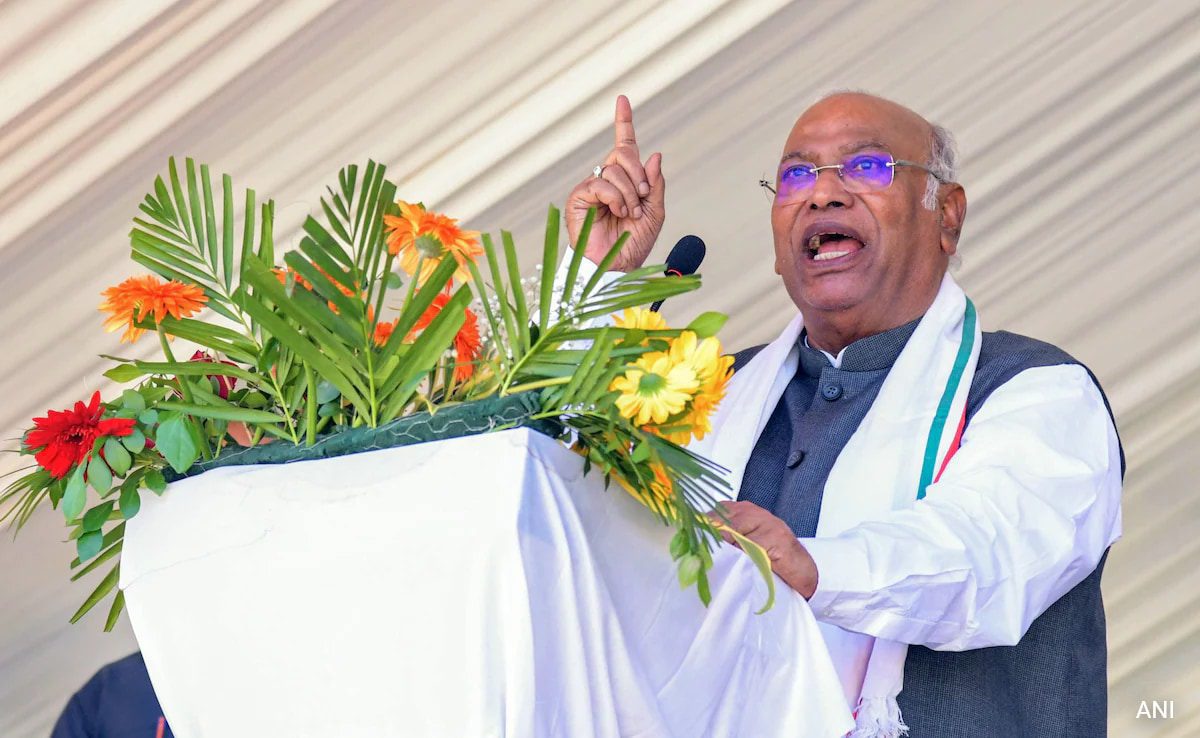Fifteen Opposition parties, spearheaded by the Congress, have opposed the “One Nation One Election” proposal, which was green-lighted by the Union cabinet today. The proposal, part of the report of a panel headed by former President Ram Nath Kovind, has been adopted, Union Minister Ashwini Vaishnaw told the media after the cabinet meeting.
The Congress has said the plan is not pragmatic or practical. Party chief Mallikarjun Kharge has called it “an attempt to divert the attention of the public”.
“When elections come, they (the BJP) are not getting any issues to raise. So they divert attention from real issues.” Mr Kharge said while releasing its manifesto for next month’s assembly elections in Haryana.
Later, in a post in Hindi on X, the Congress chief said “One nation, one election” is just BJP tactics to divert attention. “This is against the Constitution, this is contrary to democracy, this is against federalism. The country will never accept this,” he said.
“We oppose the idea of One Nation One Election,”said Rashtriya Janata Dal’s Manoj Jha. “Ashwini Vaishnaw has said that 80 per cent people supported it during the consultation. We want to know who the 80 per cent people are. Did anyone ask us anything or talk to us?” he added.
Under the plan, which proposes simultaneous Lok Sabha and Assembly elections, is backed by the NDA and many judges of the Supreme Court. Under it, urban body and panchayat polls have to be held within 100 days of the general and state election.
But implementing it would require two-third majority in parliament, since it involves amendment of the constitution. At least six amendments would be required to bring it into effect. After this, it has to be ratified by all states and Union Territories.
While the NDA has a simple majority in both houses of parliament, getting two-thirds majority in either house could prove a challenge. Of the 245 seats in Rajya Sabha, the NDA has 112, the Opposition parties 85. For a two-thirds majority, the government needs at least 164 votes.
Even in the Lok Sabha, the NDA has 292 of 545 seats. The two-thirds majority mark stands at 364. But the situation could be dynamic, since the majority would be counted only in terms of the members present and voting.
The parties that have traditionally given issue-based support have a handful of MPs too, but it is not yet known which side they will be on now. Earlier, the BJD and the AIADMK had supported the ides.
Naveen Patnaik’s Biju Janata Dal and YS Jaganmohan Reddy have been routed in the elections in Odisha and Andhra Prsdeh — one by the BJP and the other by BJP ally Chandrababu Naidu’s Telugu Desam Party.
The BJD has 7 MPs in Rajya Sabha, the YSRCP 9 in the Rajya Sabha and the four in the Lok Sabha. The AIADMK has only four MPs in the Upper House.
After clearing all the hurdles, the law can be put in place. But the government, in the meantime also has to create bipartisan support and a countrywide narrative. Its implementation can only be done after 2029, the Kovind report has recommended.
Several earlier pitches for “One Nation One Election” have fallen through after the opposition refused to back the idea, contending that it was anti-democratic, against the Constitution and impractical. The CPM has alleged that the government is trying to replace parliamentary democracy by slipping in a Presidential form of government “through the back-door”.
Prime Minister Narendra Modi, an enthusiastic votary of the One Nation One Election idea, had said this was not a matter of debate, but a “need for India”.
“Elections are held at different places every few months. The effect it has on development work is known to all. This issue needs to be studied and presiding officers can be guiding force for it,” he said earlier.
